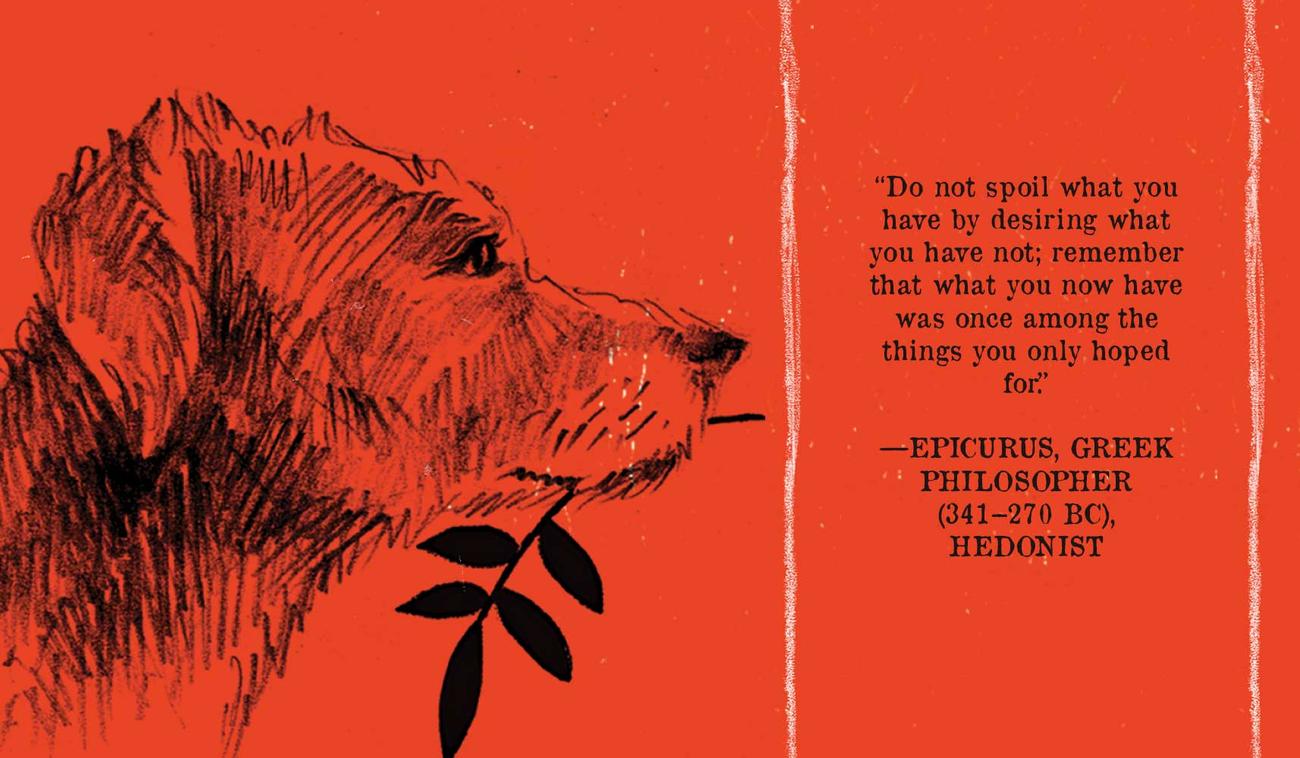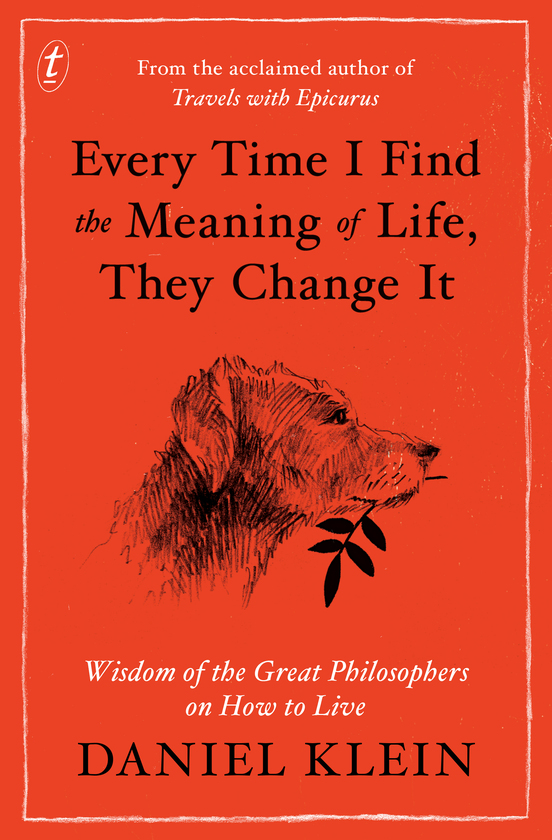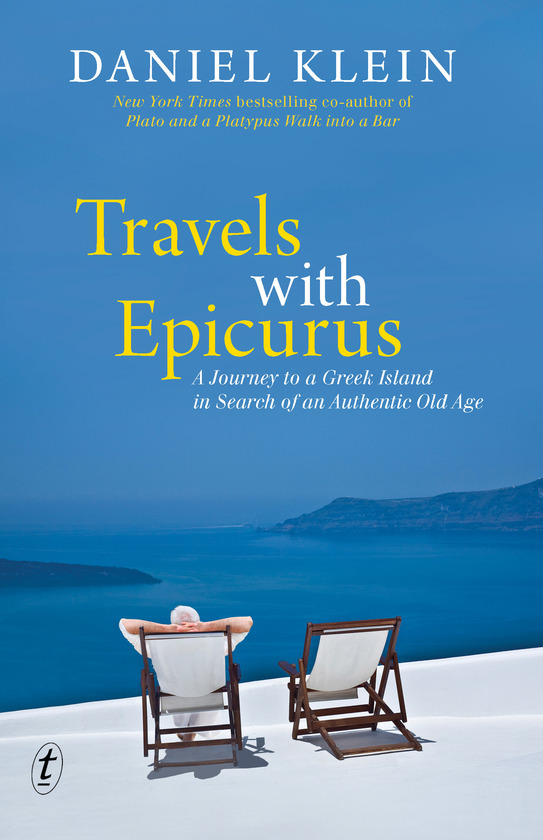
In Every Time I Find the Meaning of Life, They Change It, philosopher Daniel Klein looks back at a notebook of quotes he collected in his younger days. He called them ‘pithies’—a playful mix of philosophical aphorisms dealing in hedonism, existentialism, pessimism, humanism, post-modernism and the list goes on. A kind of philosophical fridge door. They are not necessarily all mantras to live by, but they’ll all get you thinking.

How did you initially react upon finding and re-reading the notes taken by your younger self?
At first, I felt embarrassed by my youthful naiveté. Did I really think these philosophers could guide me, a 20th century spoiled American brat?
At the time of taking down your pithies, you were a young philosophy student. What were your interests then? What philosophers or schools of thought spoke most strongly to you?
At that time my chief interest was young women, specifically the problem of getting them into bed with me. Thus, I was attracted to both the hedonistic philosophers and the existentialists who, in my mind, exhorted me to go for it!
You say in Travels with Epicurus that the point of a philosophy is to help you understand the world in a more lucid way. Your father, on the other hand, called it ‘mental masturbation’. What do you see as some of the benefits for the average person of contemplating these philosophical questions?
The 20th century British philosopher Bertrand Russell put it best in his essay The Value of Philosophy: ‘The man who has no tincture of philosophy goes through life imprisoned in the prejudices derived from common sense, from the habitual beliefs of his age or his nation, and from convictions which have grown up in his mind without the co-operation or consent of his deliberate reason. To such a man the world tends to become definite, finite, obvious; common objects rouse no questions, and unfamiliar possibilities are contemptuously rejected…[But philosophy] keeps alive our sense of wonder by showing familiar things in an unfamiliar aspect.’
Do you think certain philosophies are more suitable than others for different stages of life?
I don’t know about other people, but in my case the philosophers of gloom spoke more personally to me in my youth than they do now. At this end of life, I feel more affinity with the philosophers who took pleasure in simply being alive.
Do you have a favourite pithy?
At this point in my life, I value the joys of friendship more than ever, so Emerson’s ‘pithy’ is a favourite: ‘It is one of the blessings of old friends that you can afford to be stupid with them.’
Are there any ‘pithies’ you took down that you might now feel to have been unhelpful or misleading?
Some of the more dour philosophers like Schopenhauer, and Sartre and Camus in their more bleak assessments of life, may have kept me down in the dumps more than necessary, now that I look back on it.
I notice that you have some contemporary quotes in your collection. Are there any other contemporary philosophers that strike you as particularly remarkable or thought-provoking for this new age?
Definitely. Derek Parfit and Adam Philips, both contemporary British thinkers, knock me out with their original takes on what it means to be human.
With so many progressions in culture, technology and society, does the philosophical legacy of the ancients remain as relevant today as it did then? Or do we need to look to modern thinkers for insight and guidance?
I still think the ancient Greek philosophers nailed it on the most abiding questions of how to live a good/gratifying life. As the American philosopher Alfred Whitehead put it: ‘All of Western philosophy is merely a series of footnotes to Plato.’
Since discovering your old ‘pithies’ book, have you started a new one?
Yes, I’ve just added to my old one. And those entries are scattered throughout Every Time…
In Every Time I Find the Meaning of Life, They Change It, you indicate your favourite philosophical method to be the ‘thought experiment’. What is this, and what about this method do you find most interesting?
Thought experiments are concrete scenarios that pose choices or interpretations that lead you to discover what your underlying philosophical principles are. These often involve moral decisions. A good example is found in the ‘trolley problem’. Check it out for a hair-raising thought experiment.
In Travels with Epicurus, you expressed some support for German philosopher Johann Hamann’s view that ‘the idle have a better perspective on philosophical ideas than academics do, in part because they are less likely to get caught up in the minutiae’. And this is certainly reflected in your refreshingly light approach. Do you find this to be a more useful way of discussing philosophy or is the academic path still a valid one?
Studying philosophy academically certainly was what got me interested in philosophy in the first place, but it sure is easy to get confused and lost in arcane details by going down that route. And, truth to tell, my brain just wasn’t big enough to understand some of it. Sometimes I think my talent for making philosophy accessible to ordinary folks like me comes from the fact that I just wasn’t smart enough to understand it in the depth of detail that academics can.
What are you working on now?
Enjoying what’s left of my life as much as possible. I think I’m done with the book thing.
Lastly, I have to ask, how is Snookers?
Very sadly, Snookers died of cancer about the same time I finished writing this last book. I miss him terribly. But because of my age, I did not wait very long to find a new four-legged companion. His name is Guffy and we are getting to know one another now.
Every Time I Find the Meaning of Life, They Change It is published next Wednesday 21 October. Read more about it here.




